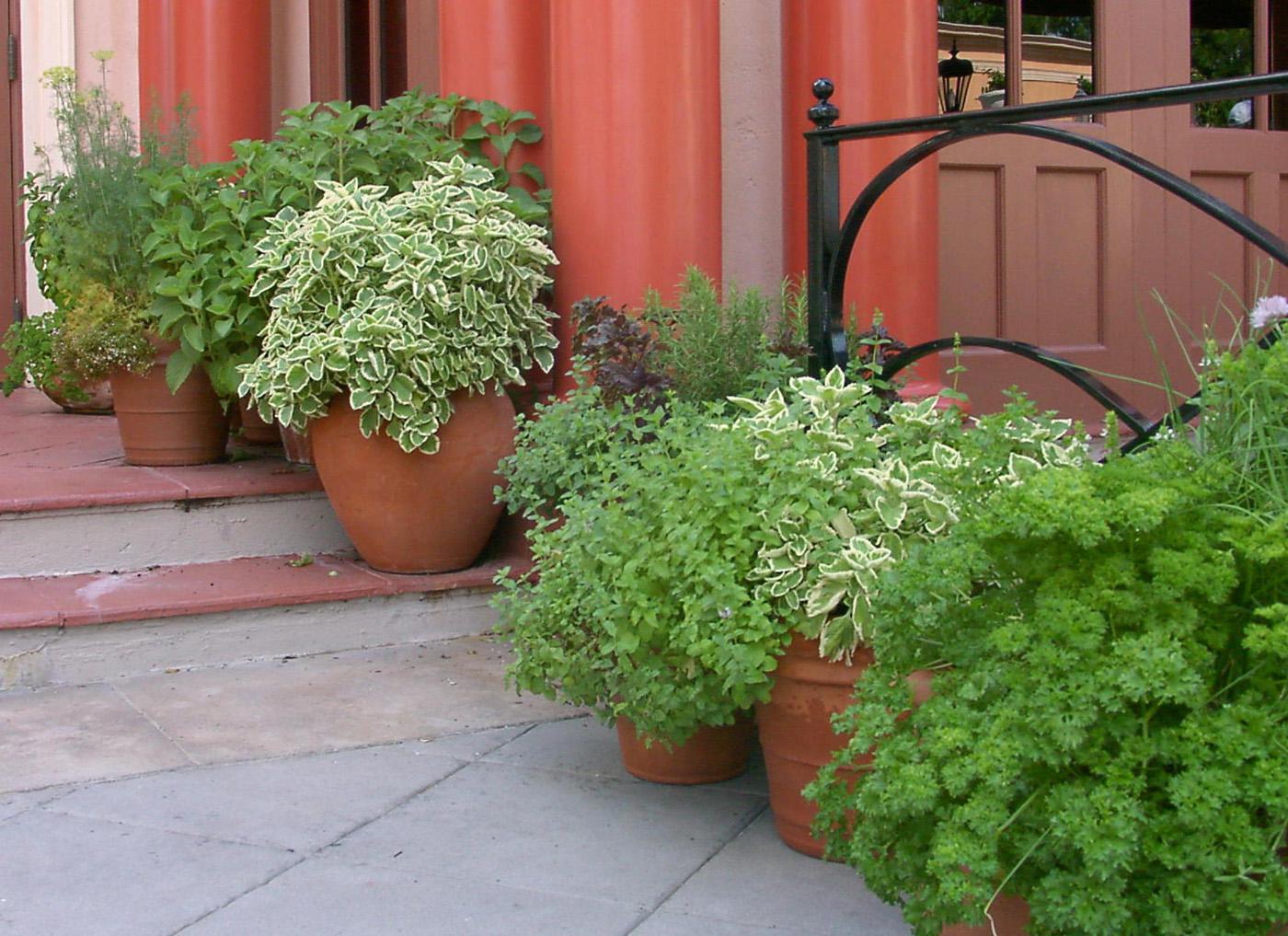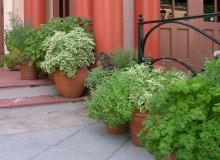Information Possibly Outdated
The information presented on this page was originally released on March 8, 2007. It may not be outdated, but please search our site for more current information. If you plan to quote or reference this information in a publication, please check with the Extension specialist or author before proceeding.
Grow easy herbs to spice up recipes
MISSISSIPPI STATE -- Herbs have a place in most American kitchens and some medicine cabinets, and many Mississippians are finding they should have a place in the yard, too.
Lelia Kelly, horticulturist with the Mississippi State University Extension Service, said herbs are easy to grow in Mississippi and an asset to gardens.
“Every gardener should have a place for herbs because they are multipurpose plants; they smell good, they taste good, they look good and they are a pleasure to be around,” Kelly said.
Fresh herbs in diets provide flavor without added sodium or fat, and they can have other health benefits. Kelly said fresh herbs are great additions to recipes.
Late winter is a good time to prepare an herb garden for spring. Start by selecting plants that grow easily in the Mississippi climate. Annual herbs include basil and dill, and perennials include chives, rosemary, mint and oregano. Parsley is a favorite, and in most Mississippi gardens, it behaves as a biennial, producing edible foliage the first year and flowering and dying the next.
“In early spring, you can plant annuals from seeds that are available in nurseries and garden stores. However, because basil has such a tiny seed, buying transplants from garden centers is the easiest way to start this plant in your garden,” Kelly said.
“Plant most herbs in the spring after the last frost. Plant perennials and biennials from transplants that are available in late spring, but perennials can be planted in the fall,” she said.
Most herbs thrive in full sun. Since many are used in cooking, locate them near the kitchen for easy access. Herbs require well-drained soil, so be sure water does not stand at the base of the plants after a rain.
“When gardeners lose their herbs, it is usually because the soil is too wet,” Kelly said.
Prepare the soil for an herb garden by adding organic matter in clay soil. Most herbs grow best in soil with a pH of about 6.5. Mulch the plants to help them retain moisture, water generously in dry times and never harvest more than one-third of the foliage at a time.
Kelly said pests rarely bother herbs since they have a high concentration of natural oils that repel insects.
“Herbs are easy to plant and maintain, and they are becoming an important and useful part of the mainstream garden,” Kelly said.
Lynn Ashford is a gardener in Florence with 30 years of experience with herbs.
“Start with the easy ones like mint, parsley, Greek oregano, chives and basil,” Ashford said. “These are great beginner herbs.”
She grows most of her herbs in pots that can be moved around, especially in the summer.
“Sometimes I build themes. I have one I call the Scarborough Fair group (parsley, sage, rosemary and thyme) plus marjoram,” Ashford said. “You can make a spaghetti saucepot, with oregano, garlic, chives, patio tomato and basil. I also put in a red and white dianthus to remind me of the red and white checkerboard tablecloth of Italian restaurants.”
She recommended planting herbs in containers according to theme or similar care requirements. Some flowers such as the edible Johnny Jump-ups work well in containers with herbs, bringing color to these arrangements.



